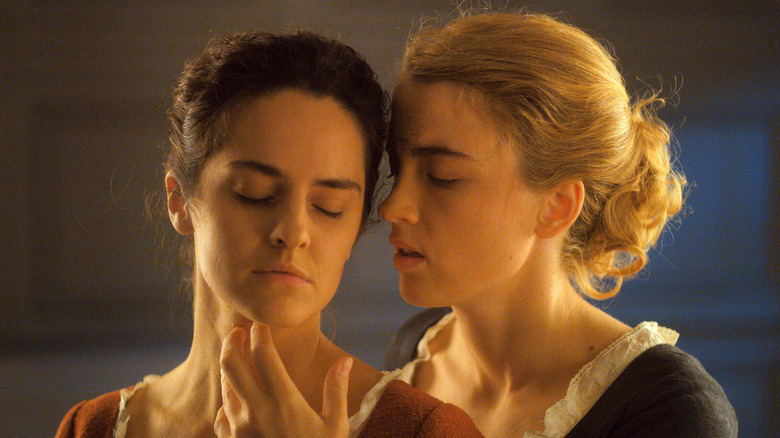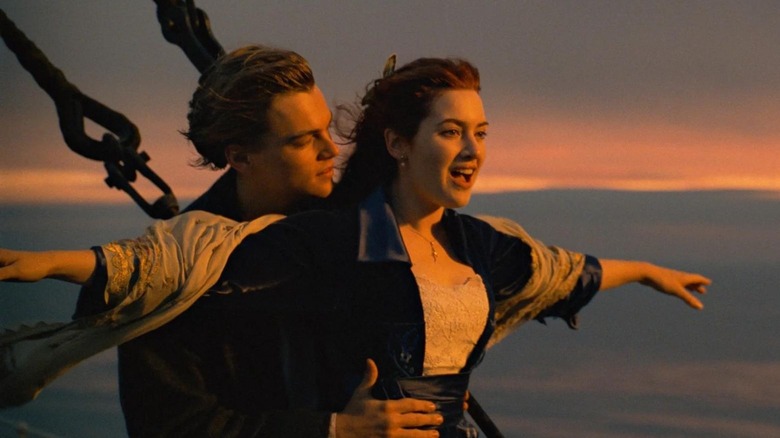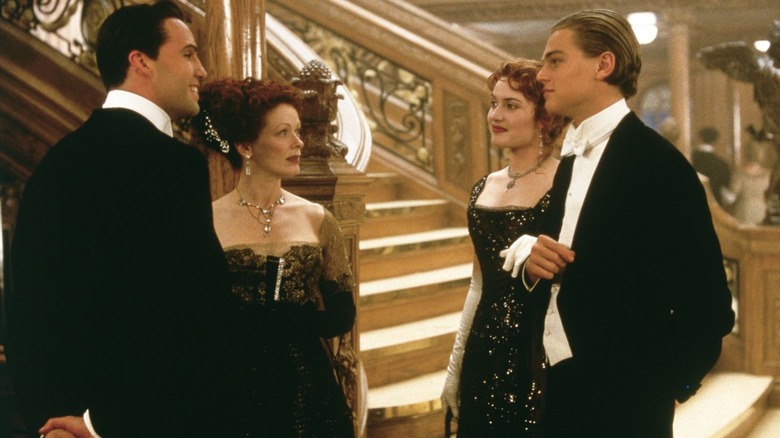Celine Sciamma Had Titanic On Her Mind While Making Portrait Of A Lady On Fire
Céline Sciamma's "Portrait of a Lady on Fire," as described in /Film's review of the film, is an evocative story of love, lust, and longing. A profoundly cinematic story, the French language period drama tells the story of the budding romance between Héloïse, an aristocrat, and Marianne, the woman who will paint her portrait. "Portrait of a Lady on Fire" illustrates a visceral queer romance — Sciamma places queer women of the past at the center of her story and tells a tale through art and yearning.
Throughout cinema's history, female characters have been gazed at without consent. Sciamma's film subverts the male gaze. Héloïse and Marianne meet each other halfway; there's no power dynamic because there's equality between them ... and, as Sciamma suggests, "emancipation." As for the filmmaker's influences and inspiration while making the movie, Sciamma has named "Titanic" to be a powerful one.
Equality and emancipation
During a 2020 interview with Vox, Sciamma went over the parallels between "Titanic" and "Portrait of a Lady on Fire," both of which are primarily told in flashbacks and tackle forbidden love. The filmmaker believes a big reason behind the success of "Titanic" was because it was a love story with "equality and with emancipation."
Like "Titanic," "Portrait of a Lady on Fire" tells the story of two people who are romantically involved but cannot be together. In the former film, Rose (Kate Winslet) has a fiancé, and then her status as an aristocrat separates her from being with Jack (Leonardo DiCaprio). In the latter, there's class division, sure, and the fact that they're both women living in a world that hasn't learned to understand them yet.
From the very onset, you know there's little chance both love stories will have a happy ending. When talking about "Titanic," Sciamma described the film as "totally queer," pointing out that DiCaprio's appearance was "androgynous" at the time. Additionally, Winslet and DiCaprio weren't well-known stars, so "there was no power dynamic between them." Furthermore, the filmmaker pointed out why she believed "Titanic" was successful — and she credits it to its earnest love story.
"DiCaprio and Kate Winslet were both not known — not stars — so there was no power dynamic between them. Like, if you look at the sex scene in Titanic, she's on top. He's the one who's being totally fragile and insecure. I think it was a huge success because it's a love story with equality and with emancipation."
'The movies are in dialogue'
Sciamma admitted to having thought about James Cameron's masterpiece quite a bit since it told the present state of a love story — and its memory. It wasn't about a love that lasted an eternity — it was about being liberated by love.
"I think the movies are in dialogue. I thought a lot about Titanic because it's also the present of a love story and the memory of a love story. A successful love story should not be about eternal possession. No, it should be about emancipation. And it is an emancipation story, because maybe [Kate Winslet's character in Titanic] lost this love, but we see her being free and riding horses and wearing pants. It's all about emancipation."
Sciamma disagrees that a love story's success is defined by the time it survives. Jack's tragic death in "Titanic" isn't the end of Rose's story and doesn't signify its end. She continues to live out her days, even if the memories of their time together sometimes haunt her.
"The success of a love story is not about how long it lasts. It's not about ending your life together. Him dying is tragic, but it's not the end of the story. In equality, there is emancipation."
Interestingly, both "Titanic" and "Portrait of a Lady on Fire" unravel by women looking at mementos that take them back in time, reminding them of the romance they encountered years ago. The death of a relationship doesn't necessarily signify the end of love, which is an idea that both moves explore in their final moments.


